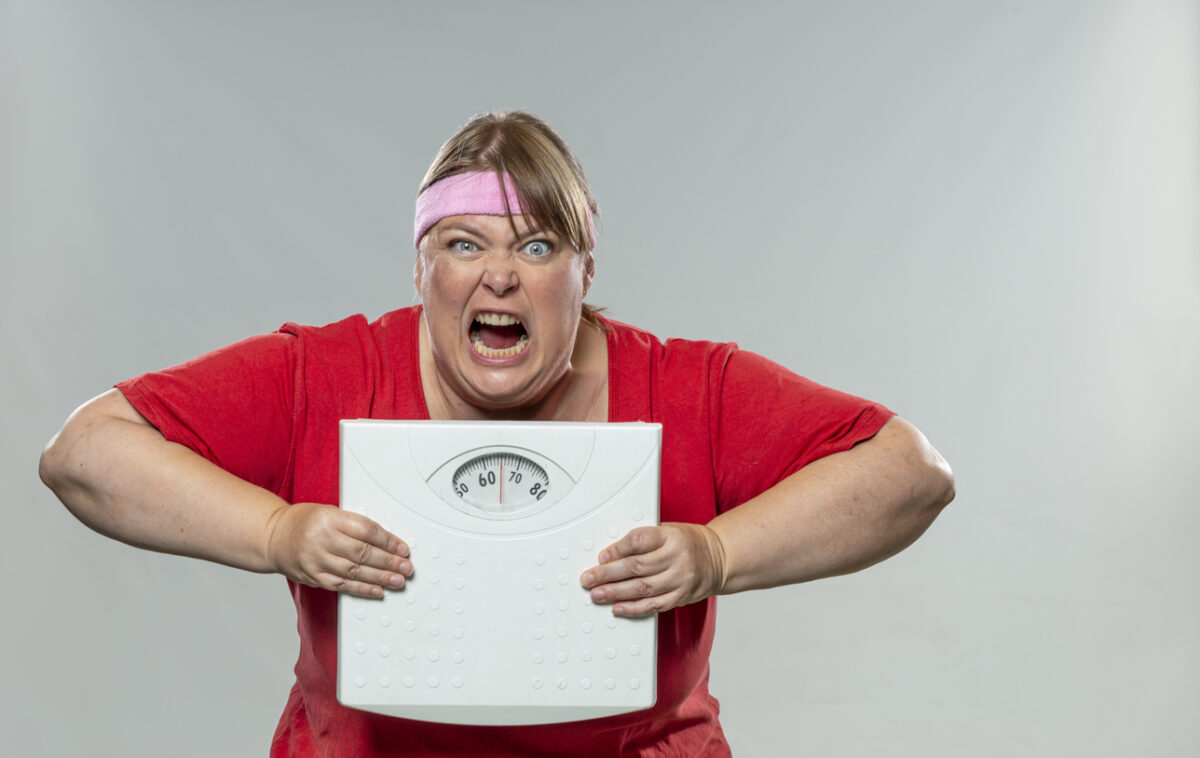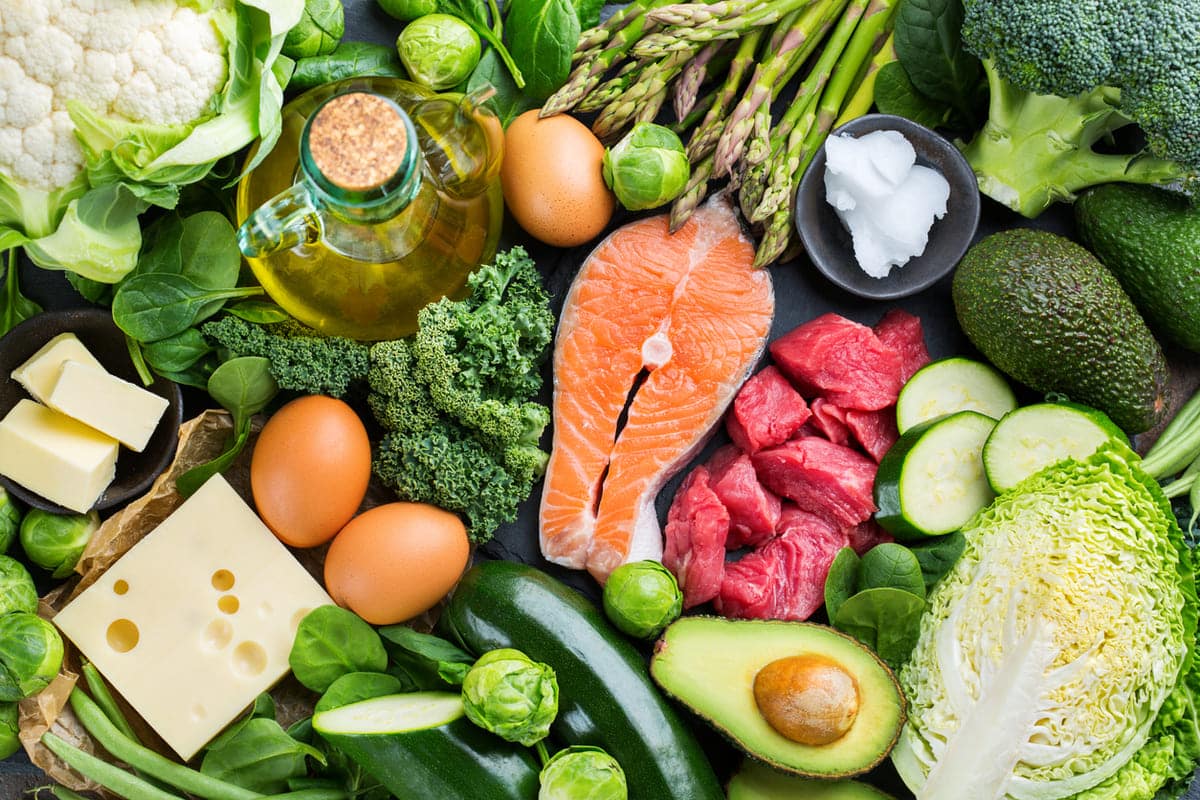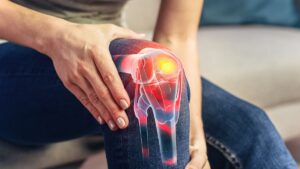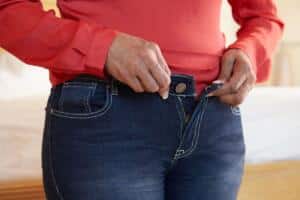I was almost 24 years old when I had my first baby, and during those 9 months of my pregnancy, I gained a lot of weight. In retrospect, I don’t blame this solely on being pregnant because, between the ages of 20 and 23, I steadily gained weight. In my teens, I was lean and athletic and didn’t have many concerns about what I ate, so I had plenty of pizza and French fries. When I reached my 20s, my activity level declined when I began working full-time, but my eating habits didn’t change. I’d try to eat better every now and then and go on an occasional run, but there was no method or order to my attempts, and nothing fundamentally changed.
When I became pregnant, the weight gain struggle was compounded by bad habits, lack of consistent fitness, and an insatiable appetite. I could eat an entire large pizza and never feel full! I think back to this time in my life and empathize with anyone who has this same struggle. I never would have thought it was possible to eat and eat and not feel physically full, but that is what was happening to me then, and it’s very real.

I had gained over 50 pounds throughout that pregnancy, which is a lot of weight in a short amount of time! My doctor monitored me for blood sugar issues and any other irregularities, but ultimately, both I and the baby were statistically healthy, and I gave birth to a healthy baby boy.
Perhaps it was blissful ignorance, or I was distracted by being a first-time mom, but I didn’t stress about the weight I had gained. I do remember weighing myself out of curiosity shortly after I got home from the hospital. You know, to answer the question, how much of this weight was the actual baby versus what I’m left with? Within a week, I was about 20 pounds less, give or take, but that left me with a lot of “extra.” Here’s where things got interesting…
I realized within that first week postpartum that my appetite was completely gone, which meant that eating less wasn’t taking any effort. Within a year, I had lost so much weight that I had people asking me what my secret was. I was confused at first because, in my mind, I hadn’t done anything specific. I wasn’t working out, and I wasn’t on a diet. I just ate less overall, and the pounds melted away without me even realizing it.
Most Effective Diet Step 1
Hormones: The Commonality Between Pregnancy And Menopause
Years later, as I reflected on what seemed like a miraculous weight loss in my early 20s, I had to recognize that the commonality between weight gain and weight loss during pregnancy and menopause is changing hormones. This makes it impossible to talk about reasonable or effective diets without addressing hormones.
My first piece of advice is to consider seeing an integrative health specialist or a doctor who specializes in female hormones if you’re struggling to lose or maintain a healthy weight. I shared my postpartum weight loss story with you because I had essentially done nothing proactive in terms of dieting to lose weight. My hormones shifted exponentially, as they do with all pregnant and postpartum women, and recognizing this unlocks a lot of potential in how we approach fat loss.
If you’re constantly hungry, never full, apathetic, unenergetic, and run down, it’s crucial to address the connection between your hormones and this. Imagine the kind of weight-loss success you could have with appetite control and a surge of energy!
Most Effective Diet Step 2
I can’t say it enough… If you’re eyeballs deep in literature, videos, and subscriptions to health and nutrition gurus, and whatever it is you’re doing to lose weight isn’t working, it’s time to clean the slate. What is the best diet? It’s simple. It’s the one that works for you.
In my mid-thirties, I subscribed to a diet with an incredibly structured, super-specific meal plan. At that time, I had about 20 pounds I wanted to lose. I believed that was a reasonable goal, considering I had been stuck in a vicious cycle of gaining and losing the same 5 pounds since I had my last baby, which was 5 or 6 years prior. The structured diet taught me discipline; it nourished my body with lots of protein, vitamins, and minerals, and as I found success, it revolutionized my thinking about nutrition. I ultimately lost 30 pounds, but it was the design of this type of structure that took the guesswork out and had me eating 6 times a day. It was low-carb, low-calorie, and no workouts, just normal daily activity.
Maintaining a healthy weight became something I lived and breathed. I became a goal-setter and incorporated routine fitness into my life. This mindset shift was my foundation for remaining lean, and my doctor was always amazed at my excellent blood work and low blood pressure. However, another major hormonal shift lay ahead, which proved to be a challenge.
Read: Lose Weight With 6 Small Meals A Day
Perimenopause, Menopause, and Fat Loss

There were several incredible, healthy habits that helped me keep my weight in check for over 15 years. Then, like a lot of people, I hit a rough couple of years. Not only did external circumstances cause me unbearable stress, but a major hormone shift began to happen. I knew the numbers on the scale were up, but I wrestled with the idea that I was fit, athletic, and strong, which must have contributed to the weight gain. I still wanted to eat to support those workouts, and I hadn’t deviated from that. So, what changed? I wanted to get leaner again, but I wasn’t sure I wanted to do what I thought it might take to make that happen.
For months, I adjusted my nutrition, reduced calories, and focused heavily on the little things I might be doing that were adding up over time to those extra pounds. Despite this, I found myself back in the same struggle I had faced years earlier. I was depriving myself of high-carb, high-calorie foods, increasing calorie-burning exercises, and losing zero weight. The weight gain was real. It wasn’t “muscle”; I was visibly larger, avoiding photos (just like in the old days) and feeling defeated.
The best diet to lose weight became the battle that was in my mind. It was when I realized my biggest struggle was letting go… letting go of my ideas and opinions on what “should” work for weight loss and focusing on what my body was telling me instead. I’ve always said, “If the scale’s not moving, the diet isn’t working.” Maybe that’s dumbing it down too much for most people, but it’s simply the truth.
As I approached 50, I found that what I needed was to reinvest in a nutrition program that provided structure, limited my carbs and calories, and was full of nutrients. The other major component was backing off from my workouts for a time. For my body to begin burning fat, I needed to reduce my carbohydrate and calorie intake. This meant that I couldn’t keep sending my body the message that it needed fuel for workouts, which were increased carbs and calories, but ALSO to burn fat. It wasn’t working when my goal was fat loss.

Months of dedication to my nutrition and switching from heavy workouts to more walking were exactly what my body needed to finally start burning fat. It took about 4 months, but I lost 17 pounds, and I feel abundantly better.
Be encouraged that even as your body changes, it’s not broken. You will find a diet to lose weight that does work for you; you just might need to let go of old ideas and be willing to sacrifice a little more than what you already have.
Read Next:
7 Healthy Habits to Decrease the Risk of Breast Cancer







